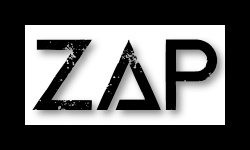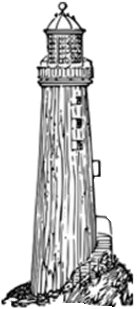|
The Zero Anthropology Project
Webfolio for Maximilian C. Forte 
HOME |
SITE MAP |
ABOUT
| RESEARCH |
MEDIA |
ARTICLES |
REVIEWS |
COURSES |
ZAP SITES |
CONTACT



This is an edited version of what was previously
just a collection of notes and abstracts. All of
the items referenced in the
previous version are listed in the
bibliography below.
The Structures of
Knowledge and the Future of the Social Sciences:
Where does Zero Anthropology Stand?
Writing in the Journal of World-Systems
Research in 2000, Richard E. Lee advanced
two major claims. The first was that the (re)production
of the structures of knowledge is a process that
was constituted by the modern world-system, and
that helped to constitute that same system in
return. Put in the language of the Zero
Anthropology Project, this means that
Western imperial domination generated its own
knowledge system (housed in universities), and
that such knowledge as was developed in modern
universities often tended to support, validate,
enable, or otherwise made use of imperial
domination for its own ends. Lee’s second claim
was the social sciences emerged in the 19th-century
(which is correct), as “a medium-term solution
to the tensions internal to the structures of
knowledge”. What we can say is that may be one
reason; another reason was that ruling classes
required a system for managing change—the famous
problem of order was central here. Lee
then offered two propositions: one was that “the
structures of knowledge have entered into
systemic crisis,” and the second was that, “the
uncertainty of the future opens up the character
of knowledge production and the definition and
role of the knowledge producer”. Placing this
again in the language of the Zero
Anthropology Project: Western knowledge
production in universities has entered a
prolonged period of disarray, self-doubt,
self-criticism, with struggles over the
definition of disciplines and their reason for
being, and numerous debates about their methods.
In such a period of instability and volatility,
knowledge production itself is being opened to
serious change (in both positive and troubling
directions), and the role of knowledge producers
is itself being opened to change.
As Immanuel Wallerstein long argued, “the
division of social analysis into three arenas,
three logics, three levels—the economic, the
political, and the sociocultural,” a division
which is a legacy of 19th-century
Western social science, is one of the biggest
impediments to the development of new structures
of knowledge. What was bequeathed to us from 19th-century
Western knowledge production was a division
between the humanities and their idiographic
epistemology (emphasizing the particularity of
social phenomena, the limited utility of
generalizations, and the need for empathetic
understanding), versus the natural sciences and
their nomothetic epistemology
(emphasizing the search for universal laws, for
generalizations, and for explanation). Social
science, having no epistemology that was
uniquely its own, was caught between the two—and
we see the exact same struggle occurring within
anthropology. For Wallerstein, this is a
productive tension, as discussed below. Put
simply, Wallerstein advocates for the fusion of
the two poles, rather than continuing a struggle
to no good end. Similarly, the Zero
Anthropology Project directly challenges
conventional, doctrinaire formulations of
anthropology as limited to a particular method,
focused on particular places and social units,
and limited to only certain questions. If anyone
thus asks, “but how is it anthropology?”—they
are in fact asking a good question, one that is
good for indexing the degree to which Zero
Anthropology is challenging and moving
beyond the limitations of 19th-century
knowledge structures.

“Zero Anthropology is not limited to
one method,
to studying certain places, asking only certain
questions”
Those in the world-systems camp argue for
analysis of the large-scale and the long-term—in
other words, Space and Time—as the main avenue
for transcending the arbitrary divisions of the
past. In the case of the Zero Anthropology
Project, this translates into the study of
empire in a holistic fashion, that does not
emphasize any one place of study, or any
one domain: everything, from everyday life,
entertainment, material consumption, rituals,
media, political discourse, diplomacy, the
military, and learning, are all part of the
study of imperialism as a social system, because
that is precisely how imperialism operates in
the real world.
In a separate article Lee defined the structures
of knowledge of the modern world as, “those
patterns of what can and cannot be thought that
determine what actions can and cannot be deemed
feasible in the material world”. It is these
patterns that are undergoing a transformation.
At the time he wrote, Lee (and Wallerstein)
believed that two knowledge movements—cultural
studies with roots in the humanities, and
complexity studies in the
sciences—challenged the separation of the
sciences, social sciences, and the humanities.
These two knowledge movements disrupted the
basic assumptions that allowed for these
mutually exclusive epistemologies to develop. In
yet another article, Lee was hopeful that
“direct advocacy,” and the erosion of
“professional neutrality,” would open
possibilities not just for new forms of
collaboration between agents that were
previously separated in hierarchies (such as
professors and students), but also new ways of
interpreting the world and envisioning
alternative actions. Since values and interests
have always been invested in knowledge
production, then any changes to knowledge
production are bound to become the centre of
real struggles and conflict. Authority and
legitimacy will themselves become subject to
exposure and criticism.
Indigenous
Knowledge and Decolonization: Where does Zero
Anthropology Stand?
Before proceeding, and in the interest of
absolute clarity, Zero Anthropology does
not presume to decolonize Indigenous minds,
primarily because the main thrust of Zero
Anthropology and most of its authorship, is
itself Western. For Zero Anthropology to
claim that it is in any way advancing
decolonization, would be an act of obvious
exploitation of the right to speak on others’
behalf, which is precisely one of the problems
of received/colonial anthropology. Instead, the
position of Zero Anthropology is a
sympathetic one—it is based on acknowledging
parallel transformations in the structures of
knowledge that can complement each other. Where
some emphasize decolonization and
post-colonialism, we instead emphasize
anti-colonialism and anti-imperialism.
The latter can be fully Western, without
trampling on the self-representations of others
or trying to taken them over, and is open to
uniting with others based on the objective
observation that empire is deleterious
for majorities on both sides of the imperial
divide. Imperialism does real damage to all
societies and their political and economic
systems, not to mention the distortion of their
cultures, which is the case whenever aggression
is married to exploitative accumulation. Pain
and rewards may not be distributed equally on
both sides of the imperial divide (the divide
between centre and periphery), but that does not
mean that the human damage done by empire is
ever limited to just one place or people. And
why does Zero Anthropology even care?
Because it emerged from within a public
university system, that was intended to be at
the service of the public—and that it would be a
major disservice to the public to deceive it
into believing that imperialism can produce a
good, sustainable way of life, that promotes
peace and justice.
What complicates the stance of Zero
Anthropology, as just described, is that the
author’s intellectual biography includes a
significant degree of input from Caribbean and
Latin American influences. Having lived and
studied in the Caribbean, and having been
exposed to the teachings of the New World Group,
which is an independent tradition in Caribbean
political economy, plus friendships and
collaborations with Trinidadian friends and
mentors over the years, means that there is no
clear-cut division between Zero Anthropology
as located in the imperial semi-periphery
(Canada), and its development shaped by both the
imperial periphery and the imperial centre
(given that the author was also trained in the
US). Perhaps this is why the author has
gravitated towards Atlantic Canada, which is
like a bridge between two imperial peripheries
linking Canada and the Caribbean.
So what is happening with Indigenous
Knowledge and decolonization that should
interest us? One theme is that the recovery
of Indigenous Knowledge is an act of
decolonization in rejecting Western guardianship
over all knowledge. It is an attempt to deny the
West the power to speak for the whole world. In
that spirit, Indigenous scholars are trying to
bring diverse ways of knowing to the forefront,
as valid epistemologies in their own right.

“The limits of Western knowledge are
also limits on
the authority and credibility of ‘experts’”
A
second theme in the restoration of Indigenous
Knowledge is also a means of reminding all of us
of the limits of Western knowledge, and
therefore of the limited ability and authority
of the so-called “experts”.
A third theme is one that recognizes how values
and interests have always been invested in
knowledge production as a means of acquiring or
projecting power—except that in this case
Indigenous Knowledge is about confronting the
colonizing control of states and governments.
Scholars writing on the third theme focus on
treaties as part of Indigenous Knowledge, and
emphasize the need for peaceful and just
coexistence. This third theme of the revival of
Indigenous Knowledge focuses on the production
of knowledge as a part of an anti-colonial
effort.
A fourth theme focuses on the development of
Indigenous Knowledge as a discipline, that has
its own theoretical and methodological tools.
Whether “discipline” is the right word or not in
this case is a significant issue, since the
concerns of Indigenous Knowledge span a wide
range of issues that have been historically
apportioned to different and even competing
disciplines. These issues include everything
from spiritual, emotional, and physical health,
to stewardship of the land, to autonomous
self-government. The result of such an effort
would be the creation of an internationalized
field of study known as Indigenous Studies.
* For more on Zero Anthropology and
decolonization, see the
Articles tab in the menu, and
navigate to the Decolonization list.
Bibliography
Champagne, Duane. (2007). “In
Search of Theory and Method in American Indian
Studies”. American Indian Quarterly,
31(3), 353–372.
Doxtater, Michael G. (2004). “Indigenous
Knowledge in the Decolonial Era”.
American Indian Quarterly, 28(3/4), 618–633.
Lee, Richard E. (1999). “The
Crisis of the Structures of Knowledge: Where Do
We Go from Here?” Presentation delivered
at the Centre for Developing-Area Studies
Workshop: “Social Sciences and
Interdisciplinarity: Latin American and Canadian
Experiences,” McGill University, Montréal,
Canada, September 23–26, 1999.
—————. (2000). “The
Structures of Knowledge and the Future of the
Social Sciences: Two Postulates, Two
Propositions and a Closing Remark”.
Journal of World-Systems Research, 3,
786–796.
————— . (2008). “Cultural
Studies, Complexity Studies and the
Transformation of the Structures of Knowledge”.
Cultural Science, 1–17.
Simpson, Leanne R. (2004). “Anticolonial
Strategies for the Recovery and Maintenance of
Indigenous Knowledge”. American
Indian Quarterly, 28(3/4), 373–384.
Wallerstein, Immanuel. (1997). “The
Structures of Knowledge, or How Many Ways May We
Know?” Presentation at “Which Sciences
for Tomorrow? Dialogue on the Gulbenkian Report:
Open the Social Sciences,” Stanford University,
June 2–3, 1996.
Wilson, Waziyatawin Angela. (2004). “Indigenous
Knowledge Recovery is Indigenous Empowerment”.
American Indian Quarterly, 28(3/4),
359–372.
Image: Photo of the interior of
Duke Humphrey's Library, the oldest reading room of
the Bodleian Library in the University of Oxford, by
David Iliff, 2015. From
Wikimedia Commons.
HOME |
SITE MAP |
ABOUT
| RESEARCH |
MEDIA |
ARTICLES |
REVIEWS |
COURSES |
ZAP SITES |
CONTACT

©
2011-2020, Maximilian C. Forte.
|